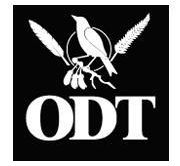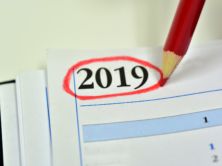
(Credit: CIMEthics.org, screenshot)
The Center for International Media Ethics announced the winner of its Ethicontest 2011 in late January. The center identifies itself as a “non-profit organization bringing together journalists throughout the world to provide training, discussion and expertise in the ethics of their profession.”
The contest called for journalists to respond in 2,000 words or less to the question “What are the ethical pitfalls of news photography from conflict or disaster zones, and how should a journalist choose what to publish?”
The contest’s judge was Zimbabwean journalist Geoffrey Nyarota, who told CIME he was “looking for essays that revealed a thorough understanding on the part of the writer of issues of ethics in general, especially as pertaining to photojournalism.”
CIME awarded Gambian journalism educator Joseph Fomolu with first place for his essay published here. Fomolu argued that photojournalism standards have been ignored with the 2011 publication of graphic photos of Muammar Gadaffi and the 1990 death of Samuel Kanyon Doe and that photojournalists “fail to know the difference between ‘right to know or see’ and ‘right to what the audience wants to see.'”
The prize was “a scholarship to get certified in J-Ethinomics, the book The Elements of Journalism and the winner’s essay will be published in the CIME Newsletter and website.”
iMediaEthics also entered this contest with this essay on the “Troubling Double Standard, American photojournalism’s different treatment of foreign victims” by iMediaEthics publisher and editor-in-chief Rhonda Roland Shearer and iMediaEthics’ Pakistani correspondent Malik Ayub Sumbal. See that essay, part one of our special investigative series into the media reporting on Benazir Bhutto’s 2007 assassination here.
iMediaEthics’ essay, along with essays from Sweden’s Rebecca Bengsston and Macedonia’s Elmedina Shafi, was listed as a runner-up.
The first Ethicontest was held in 2010. Its winner was Indian freelance journalist Abhirup Bhunia. His winning essay, “Dissemination of Information: Government Interests, National Security and Freedom of Speech – How to Strike the Right Balance?” is here.
We have written to CIME asking for more information about this year’s contest and will update with any response.
UPDATE: 2/6/2012 9:30 AM EST: CIME’s Csilla Szabo responded to iMediaEthics’s e-mail, telling u that the contest was created “in 2010 with the aim of giving a voice to journalists who had experienced ethical difficulties at work and wanted to share lessons learnt with their counterparts elsewhere in the world.” She wrote that the first contest, in 2010, focused on “Dissemination of information: government interests, national security and freedom of speech — how to strike the right balance?” in light of WikiLeaks. Last year’s contest, on “the ethical pitfalls of news photography from conflict or disaster zones,” was in response to “the recent unfortunate events in Japan and Haiti.”
This year’s contest received eight entries, according to Szabo. She wrote that “A variety of topics were presented, including ethical practices in post-communist countries (such as Bulgaria), photojournalism in the Kosovan war, questions on the published picture of the deceased Gaddafi, the mysterious Brown Jacket Man at the Bhutto crime scene in Pakistan, and debates over a snapshot of a fifteen-year-old girl after the earthquake in Haiti.”




